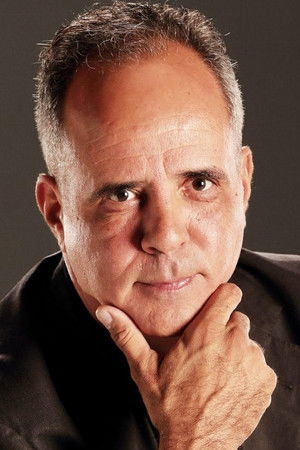Rodrigo Leão (b. 1964)
Birthplace:
Lisbon, Portugal
Born:
October 15, 1964
Rodrigo Leão is a Portuguese musician and songwriter. He was born in Lisbon in 1964. He became known for his musical compositions and participation in Portuguese bands such as Madredeus and Sétima Legião. Rodrigo Leão was one of the musicians and composers behind the successful Portuguese ensemble Madredeus; he was in the band for nearly 10 years before leaving to focus on his own solo career. Yet, Madredeus was only one of the many stops of a 30-year career that has seen Rodrigo Leão invite Portishead's Beth Gibbons, The Divine Comedy's Neil Hannon or Tindersticks' Stuart Staples to sing on his albums and live shows; perform with Ryuichi Sakamoto or Ludovico Einaudi; and see his music used on film soundtracks or praised by Pedro Almodóvar. Rodrigo Leão started out as a bassist in an indie-rock band before moving into Madredeus' chamber-pop and into the neo-classical textures of his own early solo material. Rodrigo was in 1982 one of the founding members of Sétima Legião, one of the most influential rock bands in Portugal's mid-1980s indie scene, thanks to their judicious use of Celtic influences. In 1986, he started Madredeus with Pedro Ayres Magalhães and Sétima Legião's Gabriel Gomes as a sideline acoustic project – one that gained a life of its own and received international success. In 1993, Rodrigo released a mostly instrumental solo album in a neo-classical, minimalist mode, titled “Ave Mundi Luminar”. With Sétima Legião on a long break, in 1994 he left Madredeus to devote himself fully to his solo career; in it he explored the edges of modern classical music and contemporary pop, marrying electronics to string and horn sections, using a separate project, Os Poetas, to set to music words from some of Portugal's greatest poets. Throughout all these roles two things kept reappearing in his work: film and songs. Madredeus had written the music for a Wim Wenders movie; Rodrigo's 2004 album was called “Cinema”, and from then on his backing group became the Cinema Ensemble. And, as he moved further in his explorations of instrumental textures, he also returned to the simplicity of the pop song. He has done so over the past ten years, and has invited others to lend their voices to his music. Portuguese stars such as The Gift's Sónia Tavares or alt-Fado singer Lula Pena; Brazilian up-and-comers Rosa Passos and Thiago Petit; and internationally acclaimed singers such as Beth Gibbons, Neil Hannon, Stuart Staples and, more recently, Joan Wasser (Joan as Policewoman) and Scott Matthew have collaborated in Rodrigo's songs. Rodrigo's music is also present in film soundtracks, including Lee Daniels’ Oscar-nominated historical drama The Butler (which won him an ASCAP award), in the TV documentary series Portugal – A Social Portrait by António Barreto and in the mobile education apps Art Legacy and award-winning history app Back in Time. Source: Article "Rodrigo Leão" from Wikipedia in english, licensed under CC-BY-SA 3.0.





